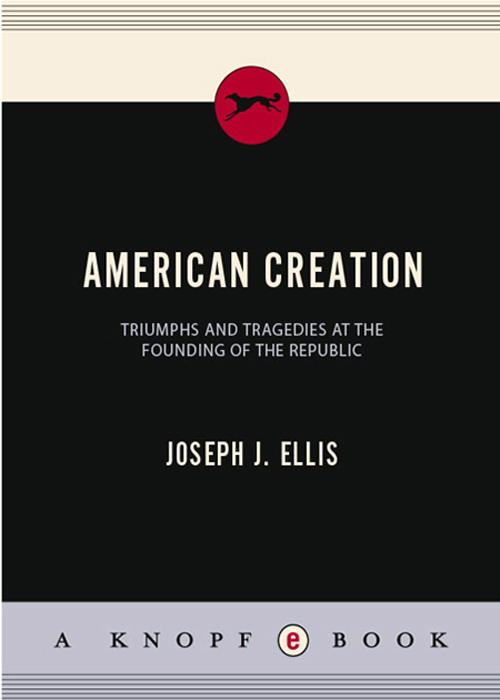
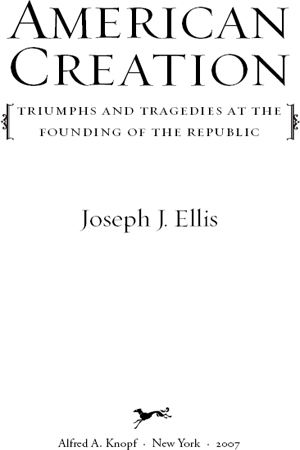
CONTENTS
To Alexander
FOREWORD
The question that prompted this book first struck my mind in the fall of 2000. I was on a book tour for Founding Brothers, making presentations that happened to coincide with the presidential election and the subsequent vote-counting controversy in Florida. One question that came up at every stop concerned the Electoral College. How, in heavens name, did the founders invent such a weird contraption? The other predictable question was more plaintive. Why must we choose between Al Gore and George W. Bush, whereas American voters two hundred years ago could choose between John Adams and Thomas Jefferson?
At least initially my answer to the second question was a model of scholarly prudence. The comparison between then and now, I explained, was inherently unfair. Those American statesmen present at the creation enjoyed the overwhelming advantage of being first, which conveyed a retrospective luster and iconic status that no one coming after could easily match. And once you learned something about the presidential election of 1800, which was one of the dirtiest and most controversial in American history, you would be less disposed to regard Adams and Jefferson as canonized political saints or the founding era as a pristine political paradise.
While historically correct, this answer proved wholly unsatisfying to most audiences, who seemed determined to regard the founding generation as the gold standard and our contemporary political leaders as a comparatively debased currency. Eventually I decided to play to their prejudices by paraphrasing a relevant observation from Henry Adams. If you reviewed all the American presidents panoramically, Adams joked, then you were obliged to conclude that Darwin got it exactly backward.
As a rhetorical tactic my response was a resounding success, ending the inquiry with a punch line that foreclosed further conversation. But intellectually my answer was only a clever finesse that provided no explanation whatsoever for the creative achievement of the founding generation except its privileged location at the start of the national story. And even though I was at pains to warn against any depiction of the founders as a group of demigods, my response permitted the mythical rendition of the founding era to persist as a once-upon-a-time location in the misty past sometime before the Fall.
Left unanswered, even unasked, was the obvious question: If you believed that the last quarter of the eighteenth century has stood the test of time as the most politically creative chapter in American history, and if you declared inadmissible any explanation for this creative moment that depended upon divine intervention, then what besides dumb luck can account for the achievement that was the American founding? Put simply, how did the American founding happen?
This book represents my attempt to answer that question. Early on, I decided that the answer was multisided, that no singular definition of political creativity could suffice, and that the biblical definitionto make something out of nothingwas entirely inappropriate. My approach, similar to that taken in Founding Brothers, was to assume that narrative is the highest form of historical analysis, that by inhabiting certain propitious moments and telling their stories, I stood the greatest chance of encountering and hunting down my quarry.
Later on, I discovered that some of the stories I had chosen to tell were as much about failure as success, in part because some of the problems facing the founders were insoluble, in part because some problems did not call out their fullest creative energies. Irony was also at work, meaning that impressive resolutions of some problems closed off options to solve others. By circumscribing federal power, especially at the executive level, for example, the founders placed the threat of despotism on the permanent defensive, but in so doing made it virtually impossible to end slavery or reach a just accommodation with the Native Americans.
This is a story, then, about tragedy as well as triumph, indeed about their mutual and inextricable coexistence. I come away from it still believing that the gathering of political talent at this historical moment is unlikely ever to be surpassed, which I suppose means that the Henry Adams quip, though wickedly mischievous, is not wholly unfair. But I also come away with a more chastened sense of celebration, periodically wishing that the founders had been demigods who could perform miracles. Then I catch myself and realize that, if flawless, they would have nothing to teach us. And they do.
PROLOGUE
 The Founding
The Founding
D URING THE LAST QUARTER of the eighteenth century a former colony of Great Britain, generally regarded as a provincial and wholly peripheral outpost of Western Civilization, somehow managed to establish a set of ideas and institutions that, over the stretch of time, became the blueprint for political and economic success for the nation-state in the modern world. Over the course of the next two centuries these ideas and institutionslabeled democracy or liberalism, though neither term would have been recognizable to the founding generationreplaced the monarchical dynasties of Europe in the nineteenth century, then defeated the totalitarian despotisms of Germany, Japan, and the Soviet Union in the twentieth.
Before we embark on the stories that follow, we need at least to glimpse the contours of the larger story, which is about the triumph of representative government bottomed on the principle of popular sovereignty, a market economy fueled by the energies of unfettered citizens, a secular state unaffiliated with any official religion, and the rule of law that presumed the equality of all citizens. What seemed so brazen and improbable at the time has become the accepted global formula for national success. The only alternative, apart from North Koreas and Cubas last-stand versions of communism, is Islamic fundamentalism. And its essentially medieval values appear to be fighting a desperate rearguard action against modernity itself. The first enduring version of political modernity made its initial appearance in the United States during the revolutionary era.1
The most prominent revolutionary of all, George Washington, offered the first comprehensive explanation for this stunning achievement, and rather interestingly, he chose to emphasize the fortuitous conjunction of large-scale historical forces beyond human control rather than the actions or decisions of men. In Washingtons formulation, written in 1783, even before the full story had played out, the American Revolution enjoyed two incalculable advantages: timeor perhaps timingand space.
The foundation of our Empire was not laid in the gloomy age of Ignorance and Suspicion, he wrote, but at an Epoch when the rights of mankind were better understood and more clearly defined, than at any former period. Over the preceding two centuries, a number of English, Scottish, and French thinkers had generated a veritable treasure trove of political knowledge that undermined the medieval worldview about government, society, and even human nature itself. The American people were the beneficiaries of this accumulated wisdomit had yet to be called the Enlightenmentwhich had its origins in Europe but was now destined to enjoy its fullest implementation in America. In effect, history had handed the American revolutionaries a blueprint for a new kind of political architecture that did not need to be discovered or invented, only applied. At this auspicious period, Washington intoned, the United States came into existence as a Nation, and if their Citizens should not be completely free and happy, the fault will be intirely their own.
Next page

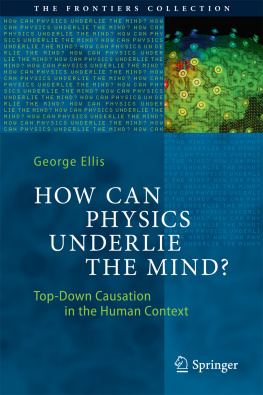
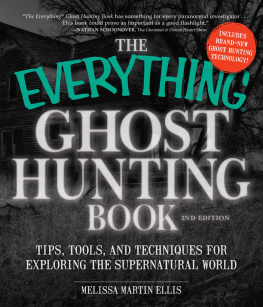
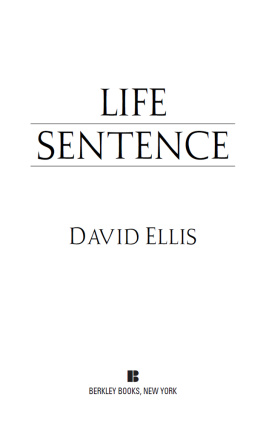


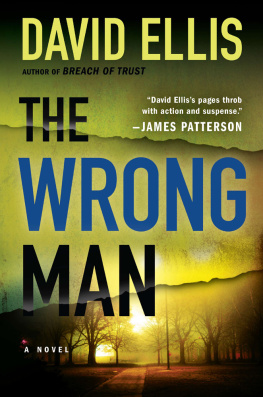
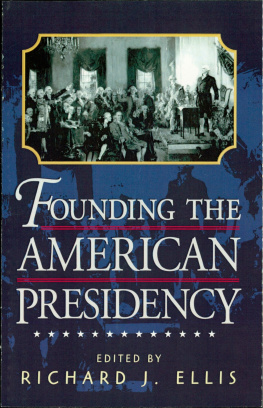
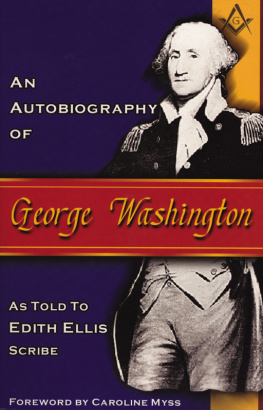
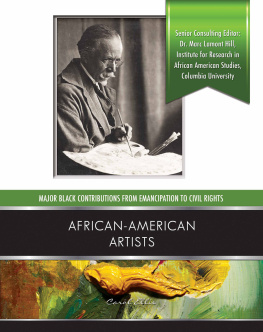
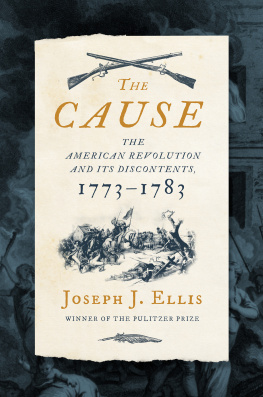
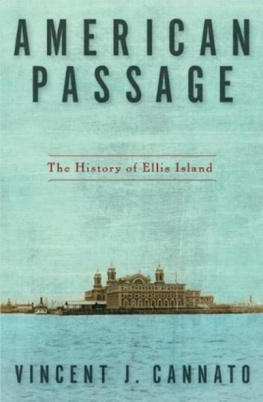
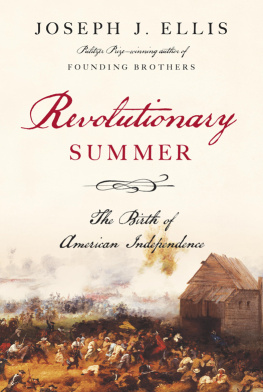


 The Founding
The Founding